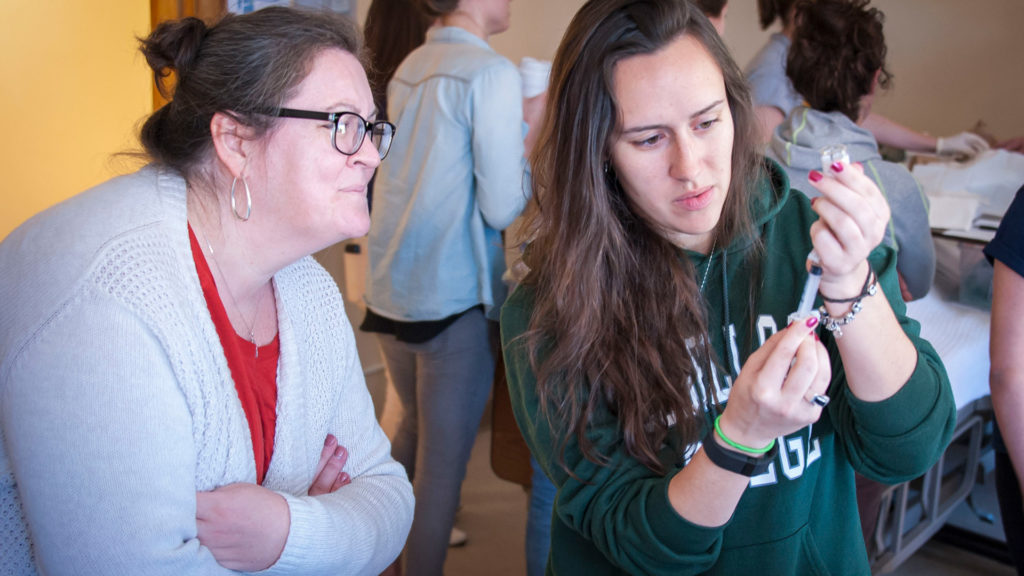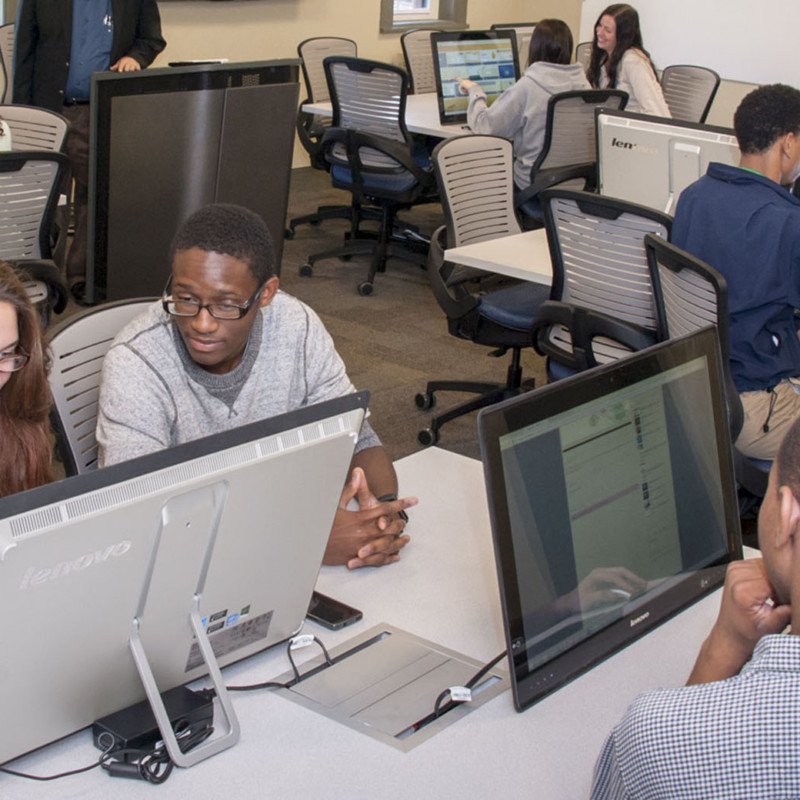
Program Highlights
Graduates are prepared to provide expertise that is trauma-informed, culturally competent and grounded in evidence-based best practices as they work across criminal justice, mental health, substance abuse and social service systems.
Course Requirements
Credits and Completion
Russell Sage College offers an interdisciplinary M.S. program in Forensic Mental Health. This 39-credit non-clinical program prepares students to become effective professionals in an area of specialization by providing substantive knowledge of legal and social systems, mental health diagnoses, developmental disabilities, victimology, therapeutic jurisprudence, clinical assessment of court-involved youth and adult offenders, and substance abuse vulnerabilities and interventions.
If you already have a Bachelor’s or Master’s degree in a field such as criminal justice, psychology or law, and would like to complement that knowledge by adding a specialized focus, you may elect to complete the 18-credit Certificate in Forensic Mental Health. This certificate may be pursued as a stand-alone curriculum or may be easily combined with the 60-credit M.A. in Counseling and Community Psychology offered by the Psychology Department.

Easily Apply
We offer rolling admission, so apply anytime, and you can start when you are ready — fall or spring semesters.
Application Requirements
- Official transcripts from all post-secondary institutions attended
- Two letters of recommendation
- A one- to two-page essay on reasons for applying to the program
- A current resume
- An RSC graduate school application

Our forensic mental health master’s comes with a deep, Russell Sage-level of support from an assigned faculty advisor who works with you to ensure your success.

Your Future Career with a Master’s in Forensic Mental Health
Alumni of Sage’s graduate programs in Forensic Mental Health have been accepted to the New York State Excelsior Service Fellowship program and hired as a homicide detective at the New Orleans Police Department; director of community services at Community, Work & Independence, Inc. in Glens Falls, New York; investigator at the Polk County (Florida) Department of Children and Families; and probation officer in Schenectady County (New York).
Additional Graduate Studies with a Master’s in Forensic Mental Health
Graduates of Sage’s Forensic Mental Health programs have completed law degrees at Albany Law School and the University of Massachusetts School of Law and doctorates in clinical psychology at Walden University and William James College.
Externships and Special Research Opportunities
As a Forensic Mental Health master’s degree candidate, you will participate in a 240-hour externship within the forensic mental health system. Recent employers that have hosted Forensic Mental Health externs include the Rensselaer County Probation Department, the New York State Office for Persons with Developmental Disabilities, New York State Office of Mental Health, New York State Department of Corrections and Community Services and New Paradigm Psychological Services.
Students also regularly conduct research and may apply for the Broughton Graduate Fellowship or the Jody Ann Zabel Memorial Travel Award to assist with expenses related to research or travel to conferences. Students have participated in conferences hosted by the Criminal Justice Educators Association of New York State and the New York State Alliance for Sex Offender Treatment Providers and have published in the Journal of American College Health.
M.S. in Forensic Mental Health Alumni Spotlights
Meet the successful students and alumni of our forensic mental health master’s program.
Kiara Maher is a Troy native and always knew of Russell Sage College as a “tight community.” But what really …
For any student considering coming to Sage, Ryan Jennings has a simple message: “If you don’t really know what you …
Amanda Henderson had personal reasons for wanting to get into the field of forensic mental health. She had a close …
Kimberly Brayton, Ph.D., J.D, is one of those people you’d want to have by your side in the fox hole. …
Kim Brayton, Assistant Professor of Interdisciplinary Studies “Forensic mental health is a field of study where we work with students to develop their skill set at the intersection of law, criminal justice and behavioral health.”





